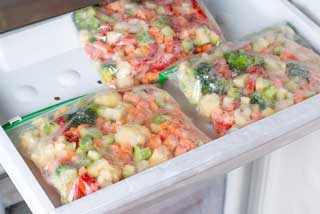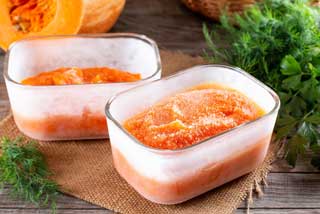Does The cooking method matters ?
As you most likely know by now, the cooking method that you choose to use on frozen food will affect the resulting nutritional value. When cooking frozen vegetables, it is recommended that you avoid boiling since this method makes it more likely for nutrients to leach out of the veggies. Keep in mind that the same applies to fresh vegetables.
When you boil food, the B vitamins such as folate and Vitamin C are the most affected, since they are water-soluble. Data from different studies has shown that you can lose up to a whopping 75% of these vitamins when you boil your vegetables. Steaming is a slightly better method of cooking but you still risk losing a good amount of the water-soluble nutrients.

According to experts, the best methods for cooking frozen or fresh vegetables to retain the maximum nutrient content are roasting, baking, or sautéing them with olive oil. When you sauté, avoid tossing the oil, but instead use it in your dish to add back any nutrients that cook out, no matter how small in amount.
Pick your frozen produce wisely
According to a majority of the studies that have been done to compare the nutritional value of frozen fruits and veggies to their fresh counterparts, one thing is clear. Different fruits and vegetables are affected differently by freezing.
For this reason, it is important to do your research and pick the right frozen produce. For example, you might want to pick frozen broccoli as opposed to fresh, since frozen broccoli contains a higher amount of riboflavin, one of the B vitamins that enhances growth and function.
Avoid sauces and other additives
When you are shopping for veggies, remember to take a look at the ingredients list. The more ingredients there are in your frozen veggies, the less healthy they probably are. Also, if they have added sauces or flavors, it might be best to avoid them since this can also affect their nutritional value.

Remember that packaged seasoning and sauces will more than often contain high amounts of sugar and sodium which are best avoided. If you want to flavor your vegetables, it’s best if you can do it yourself using different herbs and spices such as cumin, chili pepper, ginger, and others.
